When we see harrowing images of bombeiros fighting relentless forest fires each summer, our hearts go out to them. They risk their own lives to save people, property and land. What drives them to perform these courageous acts? And when not fighting fires, what else do they do?
I had the opportunity to visit Lagos Fire Station and find out for myself. The commandant, Márcio Regino, is happy to answer all my questions. Three years ago, at 39, he assumed the position of Commandant in Lagos. I am struck by his calm, assured manner, likely to inspire confidence and trust in those around him.
First things first. Where did he grow up, and what led him to pursue his career? “I spent my childhood in a small village near Aljezur. Whenever I heard sirens, I was eager to see the fire engines and the bombeiros ready for action. It was a passion that grew over the years,” Márcio explains. “At 14, I joined the Philharmonic Orchestra of the Bombeiros and, at 16, enlisted as a firefighter.”
Márcio committed to a considerable amount of firefighter training and invested much in academic studies, concentrating on human resources and civil protection, all of which served him well in his career. He moved to Lagos in 2004. “I wanted to get to know life in an urban area and transferred to the bombeiros here,” he explains.
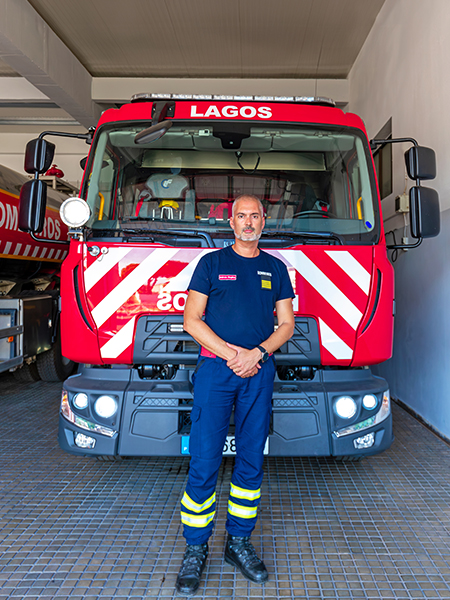
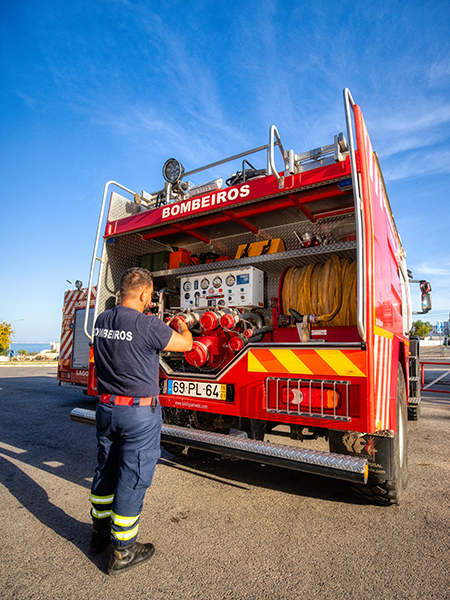
Statistics show fewer hectares were destroyed due to forest fires this year compared to the previous year. Are the bombeiros better prepared and equipped? “Yes, this is certainly true, but it also involves increased vigilance and awareness. There are teams of civil protection, GNR and others in strategic positions, enabling us to respond as quickly as possible. We need to use all means at our disposal to deal with emergencies and hence avoid fires spreading.”
Although there were fewer active fires this year, there were more callouts and false alarms. When a fire is reported, the local bombeiros and those from Lagos, Monchique or Portimão respond. Some fires are unfortunately started deliberately, being a serious criminal act, and some may be due to negligence or accident. Awareness again is crucial, he emphasises.
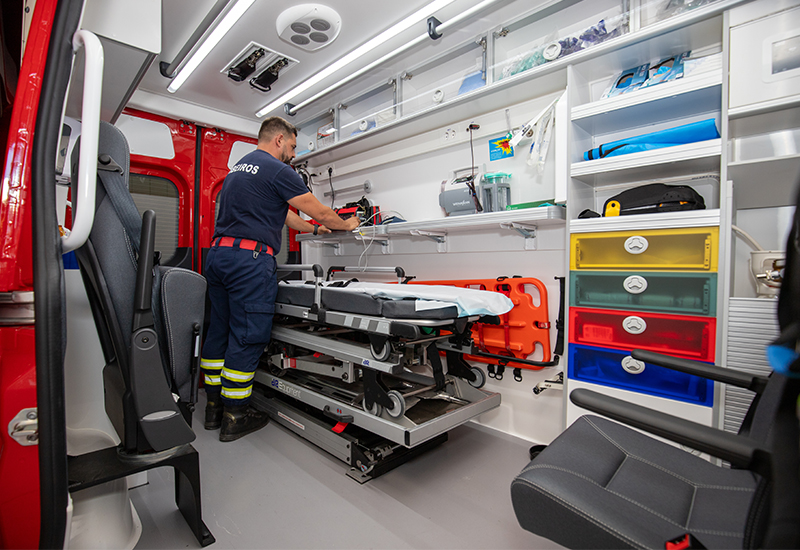
He tells me all bombeiros are well-equipped and have personal protection gear for urban and forest fires. Most of us have probably heard the buzz of helicopters above us, laden with huge water balloons on their way to assist. I have always wondered where they come from. He confirms there are several in the region. Monchique, São Brás de Alportel, Loulé and Faro each have one, in addition to two aircraft in Portimão. When there is an emergency, they are deployed in the region as necessary.
I learned that Lagos has eight fire engines with specialised functions. Three are equipped to combat forest fires and another two (one with a 30m-long ladder) for urban fires and rescue operations. There is also a tactical command vehicle and one for dealing with road accidents.
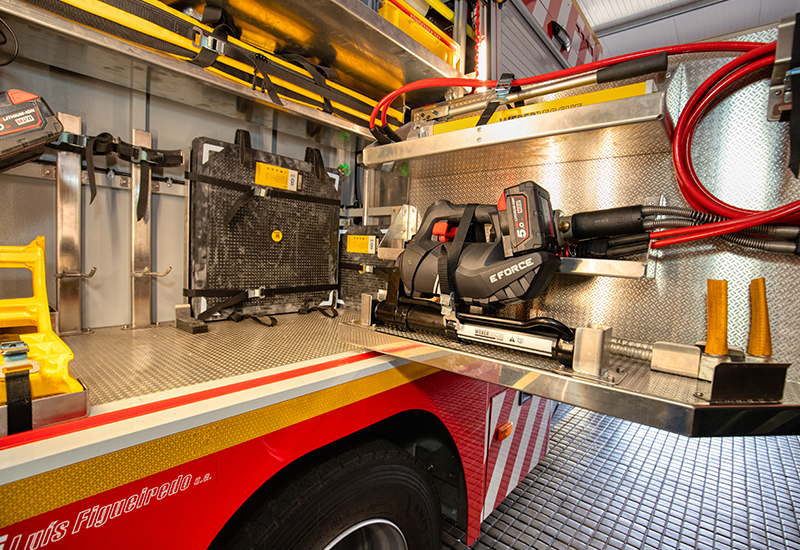

Fighting fires is crucial, but what are the other functions of the bombeiros? I am amazed when Márcio Regino lists all the other incidents that require their assistance, many daily. Out of 16,508 incidents last year, 5,212 were medical emergencies, 112 forest fires and 56 urban fires, 112 road accidents, 421 rescue operations, 67 incidents of flooding, collapse of buildings and trees, and 395 occasions involving various states of alert. “These numbers are expected to rise this year,” he tells me. “And we have to always be prepared.”
So, how are firefighters able to deal with these different scenarios? Training is the answer. All bombeiros receive professional training at the station or in collaboration with other organisations.
Each full-time professional works a twelve-hour shift (from 8 am to 8 pm or from 8 pm to 8 am). They also do one hour of training during this period, be it maintenance of equipment and installations, instruction in situ or physical fitness.
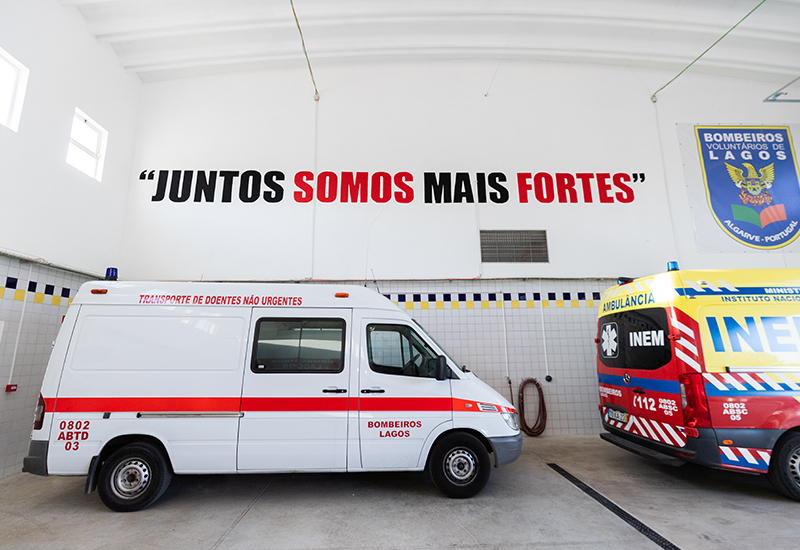
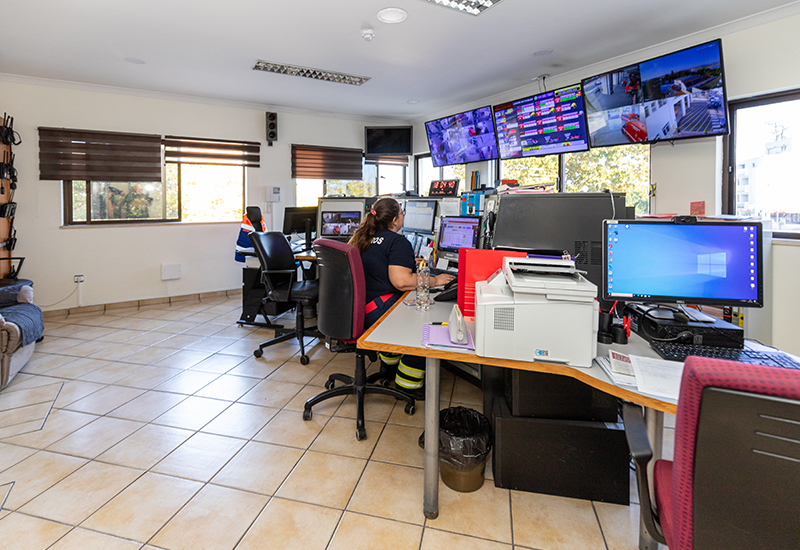
There is much investment in specialist teams. The Water Rescue and Diving Unit is ready to respond rapidly to sea emergencies. I’m later shown the room with all the diving equipment, all neatly ordered with diving suits, BCD jackets and cylinders, ready for action.
“We have 20 people trained in rescue in collapsed buildings, with another three joining the team this month. It is important to have these skills, especially in the light of the recent earthquakes in Morocco,” he stresses.
I can tell that Márcio has his finger on the pulse as he has all the facts and figures at his fingertips to answer my questions. Lagos bombeiros has 104 personnel to fulfil all these functions, with 48 full-time professionals. The rest are volunteers, of which 17 are about to enter the profession, and 14 are currently doing the necessary training. There are also 22 female firefighters, most of whom are volunteers. Márcio explains that the number of full-time professionals is growing as there is a need to respond to daily incidents. His vision is to one day have an entirely professional body of firefighters.
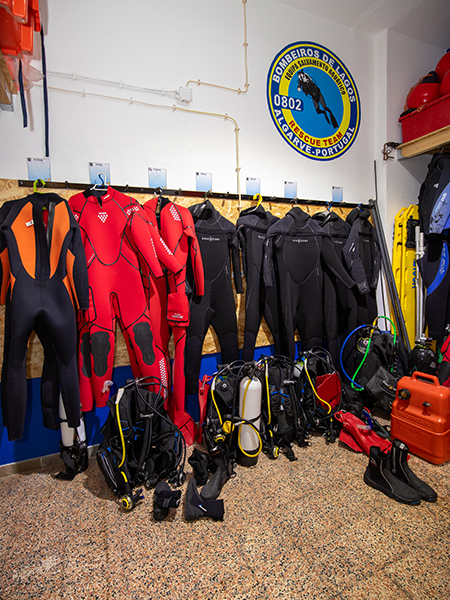
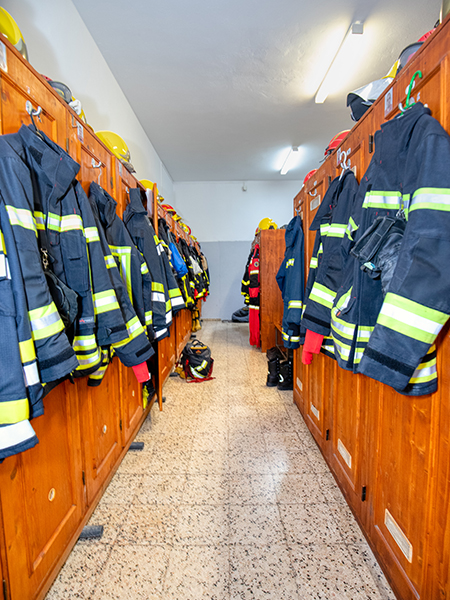
The volunteers work on a rota system and have a fixed number of hours. As they aren’t remunerated (except for some concessions), they need to have other jobs from which they are released if there is an emergency. They complement the body of professionals, and their assistance is valuable.
There are particular concerns in Lagos in the summer months, and bombeiros need to be on constant alert. In July and August, the population increases threefold, and incidents are frequent. In the historic centre, accessibility of vehicles is difficult, and this might well delay the resolution of incidents.
The primary responsibility of the commandant is to manage human resources but also to oversee incidents and operations. Does he still participate actively in emergencies? “Oh, yes. It’s not just a desk job,” he assures me. “For instance, I was assigned by the Regional Emergency Command to manage the operations at the recent forest fires in Aljezur.”

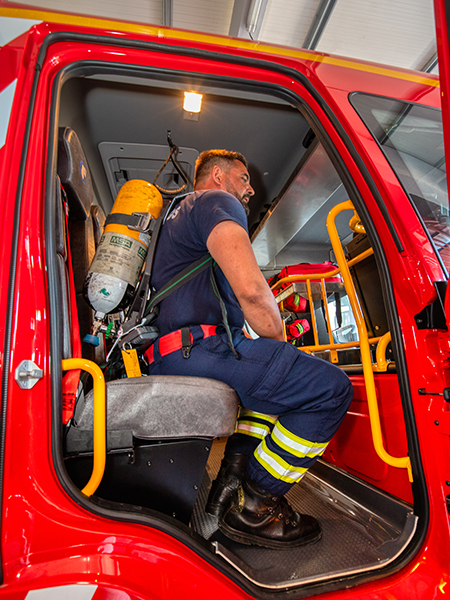
Over the years, he must have amassed many experiences leaving their mark. Is there anything that he particularly remembers? Márcio Regino pauses momentarily before telling me of two very different incidents he remembers vividly. Last year, he was involved in an emergency callout at sea: “It was pitch black. A fishing boat had listed badly with men entangled in nets in the water. With our group of divers, we managed to rescue them. Except for one. A young fisherman that we couldn’t save. The image of this boat and what happened will stay with me forever.”
He is keen to tell me about another incident with a wholly positive outcome. As a rooky bombeiro, he and his colleague had to take on the role of midwife when transporting a heavily pregnant woman to hospital. “I was nervous and tried to convince the woman that I knew exactly what I was doing – at least in theory! The baby was delivered in the ambulance, but the umbilical cord was wrapped around the neck. We cut it, and the baby began to breathe normally. It was so gratifying. Sometimes, people lose their lives in our missions, but here, we brought a new life into this world. It was a fantastic experience,” he smiles.
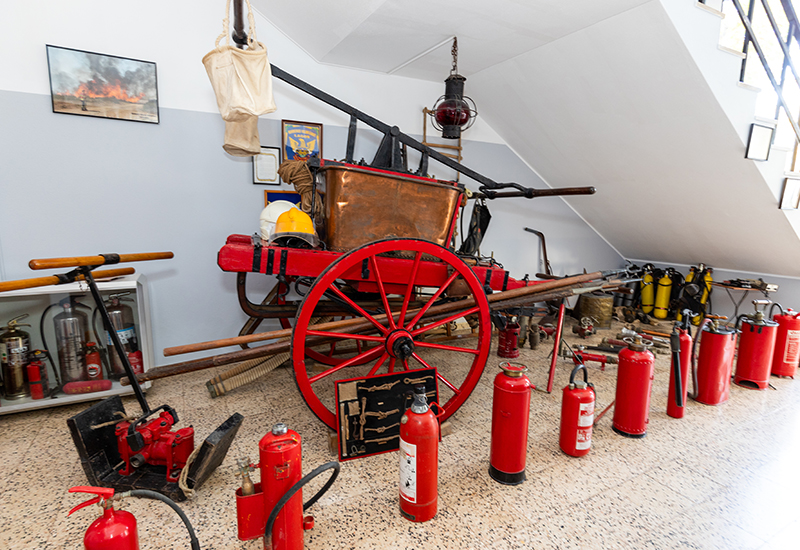
Some more number crunching. How are the bombeiros supported financially? It’s the Municipal Council of Lagos that provides essential financial support, but there is also collaboration with other entities, such as Civil Protection of the Algarve. Fifteen bombeiros areworking with the civil protection association; half the cost is paid centrally and the other half locally.
Márcio Regino stresses that it must be local and central governments that need to take responsibility for covering necessary costs. “I don’t want to be chasing money from people, but of course, donations are most welcome. We appreciate the support from the foreign community and many private businesses. These funds enable us to keep investing in new and innovative equipment,” he adds.

I am becoming more aware of the crucial role that bombeiros have, not only in combating fires but also in keeping our cities safe. What does it take to become a firefighter?
Márcio Regino doesn’t hesitate: “You need a sense of dedication, knowing that often you must work excessive hours in difficult circumstances. You need to feel compassion for others and have an urge to help those in need. Also, you need to take pleasure in what you do.”
During his two decades in Lagos, the commandant thinks conditions have improved significantly. “There is more professionalism in the firefighting corps, and we have more modern equipment and installations. There is increased awareness in terms of local and national governance that we need to do our utmost to secure a safe environment for our inhabitants and visitors. We’re moving in the right direction.”
I think the slogan painted on the station’s wall: ‘Juntos Somos Mais Fortes’ (Together We are Much Stronger) perfectly encapsulates his vision.
While bombeiros aren’t exactly superheroes, they can’t be far off …
Photos © Dave Sheldrake Photography
View commander Márcio Regino’s message, click on the ‘CC’ button for subtitles:
Fundraising Events
It is vital that the fundraising for the bombeiros continues all year round to ensure that ‘together we are stronger’. If you wish to support the firefighters, then joining the Alerta Facebook group is a great way to donate or see where there are fundraising events.
FB: Associação Alerta de Incêndio Florestal/Forest Fire Alert
Quiz Night
Victoria’´’s in Silves hosts quiz nights to raise money for the bombeiros. The next quiz nights are on 9 and 23 of November and 7 and 21 December. All start at 7 pm. On the 21st of December, there will also be an auction for Alerta. Opposite Poço Barreto train station, Silves, Portugal.
+351 913 167 593
Crafts Fair
Vale do Milho Golf Club are organising a fundraising event on Sunday, 10 December, from 12 pm – 4 pm.














